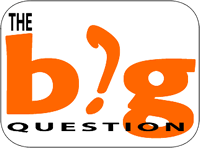“Training for Good”
There’s a lot of focus in the L&D world on corporate applications of training or...
Read MoreThis month’s question is a flip of last month’s question, both centring on the immediacy aspect of quest for learning.

Here are 3 things that I’d like to see change in learning professional’s roles to allow for more “now-ness”:
1. One of my favorite bosses used to talk about producing work that was “good enough” – that we spent far too much time pursuing perfection and beyond good enough was just a waste of time and energy. In terms of process, we should just be ok with the fact that our learning solutions might end up being rough around the edges or not perfect, but maybe that’s ok. Embrace techniques like timeboxing for development and as @hjarche says live in “perpetual beta”.
2. Embrace and foster user-generated content. If we are internal bottlenecks, then we should figure out a way to get our SMEs to produce good stuff and share with each other. I am working with an organization to support a new system and when we talked about how training has worked before, they told me that each location often produces their own stuff (since the central group are too busy to develop and maintain training materials) and they’d actually like to let those uber-users create materials, but enable them to share those materials with others as well. In today’s wikified world, I think that makes sense. The learning professionals become almost Quality Control and maybe design/development coach.
3. I love find more than search to be honest and when things appear serendipitously, I am more drawn to it. Search feels like a slog, find feels like an adventure. We need to curate and/or feed things to people who are in knowledge roles. Yes, operational support should be searchable. I like the idea of a community manager role as a companion to traditional learning professional, who will push syntehsize, push content, ask provocative questions, and help to manage information overload. Here’s a couple of suggestions for managing information overload: Howard Rheingold’s attention map and a recent post on the Yammer blog (thanks to @C4LPT)
I think the role of the learning professional is evolving in this direction anyway. But, if we are able to lean into the change rather than resist it, we’ll find ourselves with richer, more rewarding roles. And, hopefully our learners will feel like they can get what they want and we move away from being organizational nannies.